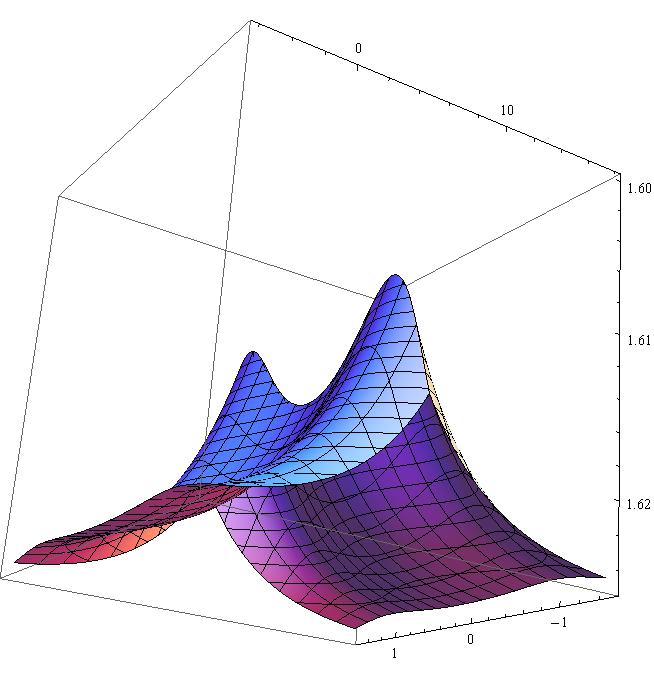Consider an equation log_2 (alpha^2-16alpha^3 +66) + sqrt(4beta^4 -8beta^2 +13)+ | (gamma/3-2)| = 4, Find the numbers of ordered triplets (alpha, beta, gamma)? Also find the sum of all possible values of the product alpha beta gamma?
2 Answers
There are two solutions:
(alpha, beta, gamma) = (2, +-1, 6)
Hence the sum of possible values of
Explanation:
The question should have had
Given:
log_2(alpha^6-16alpha^3+66)+sqrt(4beta^4-8beta^2+13)+abs(gamma/3-2) = 4
Let us look at each subexpression in turn:
(
alpha^6-16alpha^3+66 = (alpha^3)^2-16(alpha^3)+64+2
color(white)(alpha^6-16alpha^3+66) = (alpha^3-8)^2+2
color(white)(alpha^6-16alpha^3+66) >= 2
taking the minimum value
So:
log_2(alpha^6-16alpha^3+66) >= log_2 2 = 1
only taking the minimum value
(
4beta^2-8beta^2+13 = 4beta^2-8beta^2+4+9
color(white)(4beta^2-8beta^2+13) = 4((beta^2)^2-2beta^2+1)+9
color(white)(4beta^2-8beta^2+13) = 4(beta^2-1)^2+9
taking the minimum value
Hence:
sqrt(4beta^2-8beta^2+13) >= sqrt(9) = 3
taking the minimum value
(
abs(gamma/3-2)
takes its minimum possible value
gamma/3-2 = 0
That is, when
Sum:
So the minimum possible value of:
log_2(alpha^6-16alpha^3+66)+sqrt(4beta^4-8beta^2+13)+abs(gamma/3-2)
is
So the only possible solutions of the original equation are:
(alpha, beta, gamma) = (2, +-1, 6)
Hence, the sum of all possible values of
(2*1*6)+(2*(-1)*6) = 12-12=0
See below.
Explanation:
We have a relationship as
with
%%%%%%%%%%%%%%%%%%%
%%%%%%%%%%%%%%%%%%%
Considering
the conditions on
or
The conditions for
for
The conditions for
giving
Attached a plot showing the variety



